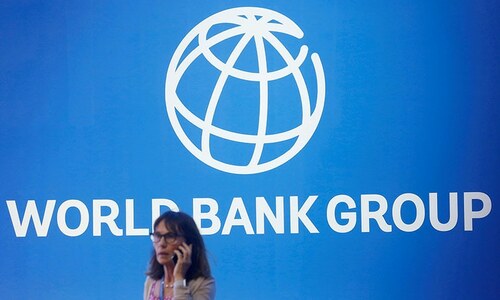ISLAMABAD: The country’s exports of merchandise entered a negative growth in July after 22 months when the economy recovered from the impact of Covid-19.
The export proceeds fell 5.17 per cent to $2.21 billion in the first month of the current fiscal year from $2.34bn in the corresponding month last year, data from the Pakistan Bureau of Statistics showed on Tuesday.
On a month-on-month basis, the export proceeds tumbled by 23.95pc indicating a downward trend in the export sector. Last time, the exports posted a negative growth of 14.75pc in August 2020.
In FY22, for the first time, not only the export target was achieved but it exceeded the psychological barrier of $30bn. Pakistan’s exports remained below this level for the last decade.
Import bill dips 38pc month-on-month
Pakistan’s exports increased 26.6pc to $31.845bn in the just-ended fiscal year, up from $25.160bn a year ago. Exports grew 6.48pc to $2.89bn in June, up from $2.72bn in the previous year.
The textile sector has already complained about the rising cost of energy and raw materials mainly due to massive rupee depreciation. Moreover, exporters have also complained about refunds that stuck with the Federal Board of Revenue.
Import bill shrinks
The import bill also dropped by 12.81pc to $4.86bn in July from $5.57bn over the corresponding month of last year. On a month-on-month basis, the import bill dipped by 38.31pc.
In June alone, the import bill edged up to $7.74bn from $6.28bn over the same month last year, reflecting an increase of 23.26pc. The decline in July will reduce pressure on the rupee-dollar exchange rate.
The import bill increased 43.45pc to $80.51bn during 2021-22, up from $56.12bn a year ago.
Taking to Twitter Finance Minister Miftah Ismail said “Our efforts to reduce imports have finally borne fruit. Imports in July, per PBS data, were only $4.86b compared to $7.7b in June. Given that we have pulled Pakistan back from the brink of default, he further claimed.
“Our government is determined to minimise the large current account deficit left by PTI”, the minister further remarked.
The government imposed a ban on the import of nearly 800 luxury and non-essential goods on May 19. Last week the government announced the withdrawal of the ban on all items except automobiles and mobile phones.
According to the Pakistan Economic Survey 2021-22, the jump in imports is recorded in all the major groups. Multiple factors have contributed to the steep rise in imports during the period under review. Rising global commodity prices contributed significantly to the increasing import volume.
Disaggregated data on imports indicates that the energy group is the largest source of the increase in imports, contributing to a one-third of the year-on-year increase in imports during the period.
Similarly, price-led pressures were also noted across non-energy commodities imported by Pakistan, such as edible oil (palm and soya bean), sugar, tea, fertiliser and steel. At the same time, the domestic demand for imported raw materials — such as cotton, steel and capital goods — was also elevated in the wake of the policy-induced economic rebound.
Pakistan’s trade deficit declined by 18.33pc to $2.64bn in July from $3.23bn over the corresponding month of last year. The month-on-month decline in trade deficit was recorded at 46.76pc.
In FY22, the trade deficit reached an all-time high of $48.66bn from $30.96bn a year ago, indicating an increase of 57pc on the back of higher-than-expected imports.
Published in Dawn, August 3rd, 2022












































